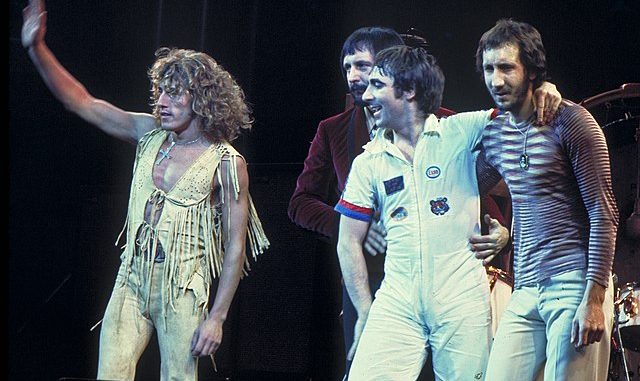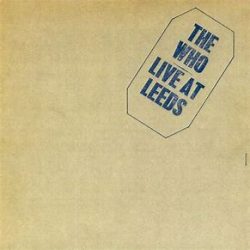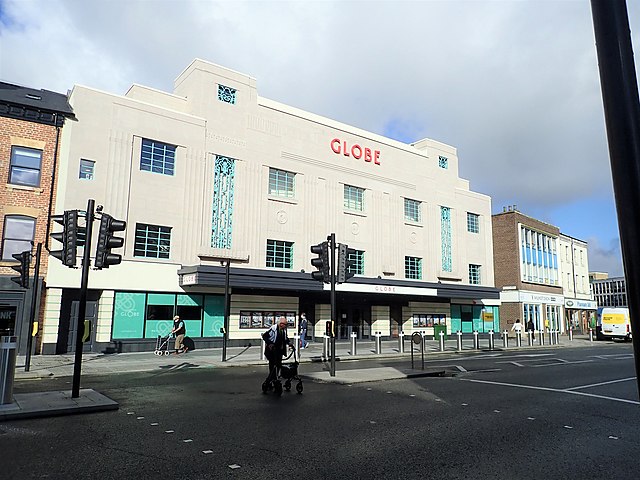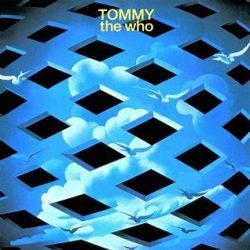
It is easy to forget how little music was available at the start of the ‘70s, and how restricted access to it was. You had the weekly press, Melody Maker, New Musical Express, and the new kid on the block, Sounds. Apart from Top of The Pops which was becoming increasingly irrelevant as supposedly serious artists focused more on releasing albums, and on TV, Disco 2 hadn’t morphed into The Old Grey Whistle Test. Vinyl albums were expensive running at the equivalent of about £30 in today’s prices, so even with an extended collection shared amongst friends access to recorded music was limited. It always helped if someone had an older brother or sister.
There was great talk at school about all the underground bands, but in truth, most people hadn’t heard a lot of the new music, apart from the odd single on Top Of The Pops and whatever you could catch on John Peel’s Top Gear. Not only was there no internet, but there were also no music books to speak of so it was also very difficult to get anything more than what you could glean from record sleeves and the weekly music press, remembering that the great champion of the new rock music, Sounds, was first published on October 10th, 1970. It was against this background of the lack of any real meaningful information and access to most of the music and artists that we schoolboys had heard of that the 1970 documentary ‘Woodstock’ was such a revelation. Here on celluloid and the big screen were all these artists we had only heard of, and some of whom were brand new to us, though I must admit Sha Na Na never really did it for me. Crosby, Stills & Nash were a revelation who definitely needed further investigation, as were Santana and Sly and the Family Stone, Joe Cocker’s demented twitching was strangely compelling, but the two acts that grabbed my adolescent attention the most were The Who and Jimi Hendrix. Sadly, I never had the opportunity to see Hendrix live, but The Who did play Stockton-on-Tees as part of their ‘Tommy’ tour, with Joe Walsh’s James Gang in support.
 I had heard The Who’s various singles, and I had heard of but not heard ‘Tommy’, when I saw The Who’s performance at ‘Woodstock’ they seemed like a completely different band to what I had assumed them to be, and 1970’s ‘Live At Leeds’ confirmed that the current live Who were a different band to that which had recorded their earlier studio work. What’s more, each member had their own musical persona with Roger Daltrey doing his best impression of a rock Adonis, Pete Townshend being a punk before punk rock had even been dreamed of, John Entwistle making the bass seem cool, and Keith Moon doing his best impression of a demented drummer. Townsend may have been the prime songwriter and Daltrey the lead vocalist, but Entwistle and Moon were equal partners in establishing the true sound of The Who with each band member having a claim to be a leading exponent of their particular musical contribution. The ABC Theatre was built in 1913, the first purpose-built cinema in Stockton-on-Tees, and was originally called The Globe. From the 1950s to the ‘70s it was also a significant live venue for bands, and theatrical shows as well as still being a cinema. The Beatles played there twice, as did Buddy Holly, and the early Rolling Stones, and it was featuring the then-in-vogue underground bands at the start of the ‘70s. I had actually seen Cliff Richard and The Shadows in the pantomime ‘Babies In The Woods’ at Christmas 1959 as a young four-year-old, and enjoyed various films there over the years, but the ABC Theatre was going to become the venue for my first live rock concert with one of the biggest bands in the world at the time, riding the success of their rock opera ‘Tommy’ and their legendary Woodstock performance.
I had heard The Who’s various singles, and I had heard of but not heard ‘Tommy’, when I saw The Who’s performance at ‘Woodstock’ they seemed like a completely different band to what I had assumed them to be, and 1970’s ‘Live At Leeds’ confirmed that the current live Who were a different band to that which had recorded their earlier studio work. What’s more, each member had their own musical persona with Roger Daltrey doing his best impression of a rock Adonis, Pete Townshend being a punk before punk rock had even been dreamed of, John Entwistle making the bass seem cool, and Keith Moon doing his best impression of a demented drummer. Townsend may have been the prime songwriter and Daltrey the lead vocalist, but Entwistle and Moon were equal partners in establishing the true sound of The Who with each band member having a claim to be a leading exponent of their particular musical contribution. The ABC Theatre was built in 1913, the first purpose-built cinema in Stockton-on-Tees, and was originally called The Globe. From the 1950s to the ‘70s it was also a significant live venue for bands, and theatrical shows as well as still being a cinema. The Beatles played there twice, as did Buddy Holly, and the early Rolling Stones, and it was featuring the then-in-vogue underground bands at the start of the ‘70s. I had actually seen Cliff Richard and The Shadows in the pantomime ‘Babies In The Woods’ at Christmas 1959 as a young four-year-old, and enjoyed various films there over the years, but the ABC Theatre was going to become the venue for my first live rock concert with one of the biggest bands in the world at the time, riding the success of their rock opera ‘Tommy’ and their legendary Woodstock performance.

The choice of clothing for my first gig wasn’t an issue given the paucity of my then wardrobe, so my trusty wranglers, a jean jacket, jumper, and my zip boots, and I was ready to go. The fact that while I may never have been to a gig before, getting to and entering the ABC Theatre was perfectly simple given past cinema visits. Myself and my bunch of mates did make time for a few bottles of Newcastle Brown Ale in The Talbot that was handily just over the road. While I may have been familiar with the ABC Theatre, I had never seen a stage setup for a concert and I was fascinated. The group of friends who went to the concert didn’t really know anything about The James Gang, apart from they were on the tour because Townshend was an admirer of their guitarist, Joe Walsh. Being my first gig and never having heard the James Gang before meant it was difficult to make any assessment of their music, but ‘Funk #49’ was a notable song that did stand out from the rest. However, despite Townshend’s endorsement, I failed to predict Joe Walsh’s solo success and his future contributions to The Eagles.
 The Who by October 1970 were truly road-hardened, having started The Tommy Tour in May 1969 at Ronnie Scott’s in London. The band that appeared at the ABC Theatre in Stockton were the band who played Woodstock with Townshend’s windmill guitar, and Daltrey’s fringed shirt and mic histrionics all firmly in place. They had also just released the hard rock ‘Live At Leeds’ which gave a cutdown version of their live show. Being The Tommy Tour songs from that album featured heavily in one form or another, but to my adolescent ears it was what were The Who’s live staples that really struck home, songs such as their covers of Johnny Kidd & the Pirates’ ‘Shakin’ All Over’, Eddie Cochran’s ‘Summertime Blues’, and Mose Allison’s ‘Young Man’s Blues’. The Who’s own ‘Magic Bus’, which included themes from ‘Tommy’ and set closer, an extended ‘My Generation’ were clear standouts, as were ‘The Acid Queen’ and ‘Pinball Wizard’ from ‘Tommy’.
The Who by October 1970 were truly road-hardened, having started The Tommy Tour in May 1969 at Ronnie Scott’s in London. The band that appeared at the ABC Theatre in Stockton were the band who played Woodstock with Townshend’s windmill guitar, and Daltrey’s fringed shirt and mic histrionics all firmly in place. They had also just released the hard rock ‘Live At Leeds’ which gave a cutdown version of their live show. Being The Tommy Tour songs from that album featured heavily in one form or another, but to my adolescent ears it was what were The Who’s live staples that really struck home, songs such as their covers of Johnny Kidd & the Pirates’ ‘Shakin’ All Over’, Eddie Cochran’s ‘Summertime Blues’, and Mose Allison’s ‘Young Man’s Blues’. The Who’s own ‘Magic Bus’, which included themes from ‘Tommy’ and set closer, an extended ‘My Generation’ were clear standouts, as were ‘The Acid Queen’ and ‘Pinball Wizard’ from ‘Tommy’.
While I certainly enjoyed my first gig, because I had nothing to compare it to I had no way of appreciating how fortunate I had been to catch The Who at the apex of their powers. I saw Yes, Family, America, and Jethro Tull at the ABC Theatre over the next couple of years, but the penny slowly dropped I had started my concert-going experience at a peak. I continued to follow The Who for a few years, and I saw them at London’s Lyceum on the Quadrophenia Tour in 1973, and as headliners at The Summer Of 74 at Charlton Athletic’s ground. The performance at the Lyceum was marred by the band’s various tapes of pre-recorded sounds malfunctioning. ‘Quadrophenia’ featured the heavy use of synthesisers played by Townshend but live they were dependent on tapes such was the state of the technology in 1973, the malfunction of which drove Townshend to distraction and put him in a bit of a tizzy that clearly impacted his and the band’s overall performance. The Who at Charlton Athletic headlined a bill that included Lindisfarne, Maggie Bell, Lou Reed, Bad Company, and Humble Pie, and while they put on a good show, and the band turning the spotlights onto the crowd during ‘See Me, Feel Me’ was great theatre, it was Steve Marriott and Humble Pie who played the best set on the day.
I think Charlton was when I started losing interest in what The Who were doing. Up to ‘Quadrophenia’ they could certainly claim to be one the greatest rock’n’roll bands, but 1975’s ‘The Who By Numbers’ didn’t maintain their previous high standard. Whether this was because Keith Moon’s health was beginning to affect his performance and consequentially that of the whole band, or that Townshend’s writing became more personal and maybe less suited to the band as a whole I don’t know. Also, none of their subsequent live recordings topped ‘Live At Leeds’. I certainly believe I was fortunate and privileged enough, to enjoy a great live performance in my hometown, and three of their best albums, ‘Live At Leeds’, ‘Who’s Next’, and ‘Quadrophenia’ were released while I was a fan, and in that way, I feel as if I both saw and heard a piece of music history, even if it took me a little while to truly appreciate it.


